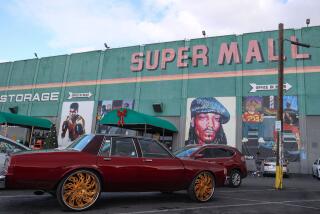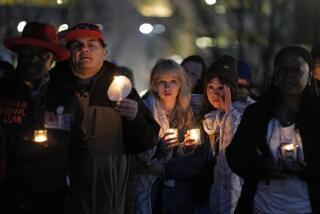Gang Members Converge on Kansas City for Peace Summit
- Share via
KANSAS CITY — Under most circumstances, the agenda for the National Urban Peace and Justice Summit opening here today would not seem so titillating.
A reception with the mayor kicks things off. Throughout the weekend, there will be discussions about urban problems, prayer meetings to end inner-city warfare and closed-door work sessions for rebuilding minority communities.
But what has caused a stir, lured media from around the country and rattled the nerves of some Kansas City residents is not the message but the messengers: Bloods, Crips, cholos, veteranos --the homeboys and homegirls of America.
On Thursday, more than 100 gang leaders--most of them inactive or former members--began arriving for what is being billed as the first peace summit ever aimed at ending the cycle of bloodshed in the nation’s ghettos and barrios.
“What motivates us should not be the hate of our enemies,” said summit participant Gus Frias, a veteran of East Los Angeles’ Maravilla neighborhood and a well-respected anti-gang activist. “The love of our people, of our children and of our communities has to be the unifying force.”
Organizers of the three-day event--including top black church leaders and the National Assn. for the Advancement of Colored People--have sought to stress that this is not a gangbangers jamboree.
But when the idea was first unveiled in February by Latino and black gang members from Boston, Chicago, Minneapolis and Los Angeles, there was concern in Kansas City that the summit could reinforce the cohesion and identity of gang members.
“If I could have a vote, I guess I would not have been in favor of it being here,” said Kansas City Police Chief Steve Bishop.
But Carl Upchurch, director of the Ohio-based Council for Urban Peace and Justice, said: “As long as we continue . . . shooting at each other and all we see on the news is someone ramming in our doors and taking away a crack pipe, then it’s OK. But the minute we try to find a better way to relate with each other, fire and brimstone come from the same people who criticize us for anti-social behavior.”
More to Read
Sign up for Essential California
The most important California stories and recommendations in your inbox every morning.
You may occasionally receive promotional content from the Los Angeles Times.










